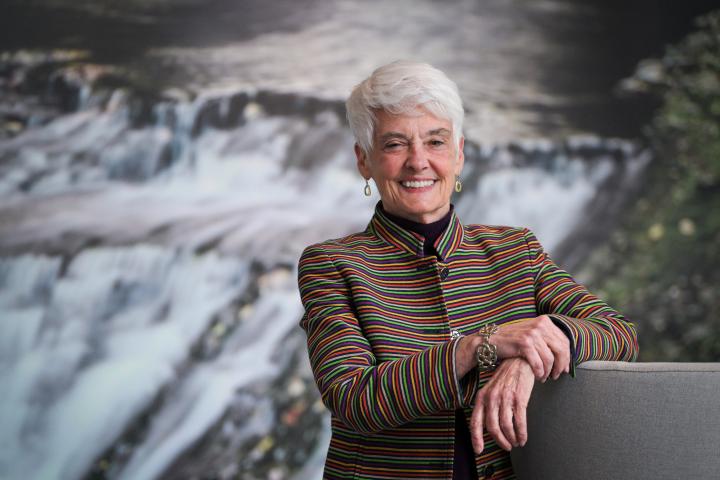
Diane Burton Q&A
Diane Burton, an organizational sociologist, is a professor in the ILR School’s Department of Human Resource Studies and serves as the department chairperson. Burton begins July 1 as director of ILR’s Institute for Compensation Studies and works with the Center for Advanced Human Resource Studies.
Involved with Entrepreneurship@Cornell and the university-wide undergraduate business minor, she has also served as a Provost Fellow for Public Engagement in Cornell University’s Office of the Vice Provost and Office of Engagement Initiatives to contribute to the broad mission of public engagement at the university.
What is your research about?
I study human resource management practices in entrepreneurial firms. I started doing this as an organizational sociology doctoral student at Stanford University. I was fortunate to be living in the heart of Silicon Valley just as it was beginning to capture worldwide attention as the hub of high tech entrepreneurship. I was able to see all of the exciting ways that young firms experimented with how they managed their people and cultures and have been able to study how early choices had long lasting consequences for firms.
My collaborators and I talk about the combination of culture, HR policies and HR practices the “employment model” and we developed a typology of five archetype approaches termed “Star,”, “Commitment,” “Engineering,” “Bureaucracy” and “Autocracy.” We are able to show there are distinct patterns to these different models and that they evolve in different ways. Beyond giving people a language for talking about their approach to HR and a way to think about building coherent systems, two important findings that emerge for our work are 1) that “Commitment” firms -- those that invest in employees and build high commitment work systems – seem to outperform others, and 2) that changing employment models is very difficult and leads to high turnover.
I started my career looking at startup firms and their top management teams, but since coming to the ILR School, I have turned my attention to startup employees. In recent published papers, I’ve been showing that people who work for startups earn less than similar peers who join established firms. While this might be expected at the outset, as startups grow most people expect pay to be comparable. Indeed, many people join startups thinking that they will become wealthy once the firm becomes successful. Our research shows that, in reality, most startups either start small and stay small, or fail. Both are terrible outcomes for long-term earnings prospects.
I am also developing research partnerships through the Institute on Compensation Studies to further study wages within and between firms. There are many exciting opportunities to better understand inequality within and between occupations and firms, across demographic differences, and to try to develop policies and practices that facilitate outcomes that are deemed to be fair and equitable, but also help organizations achieve their desired goals.
I have been working on an initiative through the National Academies of Science, Engineering and Medicine evaluating the role of “inducement prizes” – big awards like the XPrize or the McArthur Foundation 100&Change – as tools to spur innovation within the federal government. We are preparing our final report and expect it to be issued later this year. It has opened my eyes to a broader need to better understand incentives and innovation.
Most recently, I’ve been working on a study of entrepreneurial firms that are funded by impact investors trying to understand if and how they might be different from firms that are funded by traditional venture capital and private equity investors. I’m particularly interested in understanding whether having a social impact mission influences how a firm is managed and whether it is more or less likely to be successful.
Given all the events of the past year, where will your research have the most impact?
I’ve been surprised by the way that everyone has adapted to remote work and video calls. I feel extremely fortunate to have been able to meet and interview many people who would have been difficult to schedule had it not been for the pandemic. I am eager to see how the changing nature of work – and the shift to remote work – is going to impact entrepreneurship and entrepreneurial firms and expect that we will see a flurry of new research down the road.
As ILR celebrates its 75th anniversary and looks to the next 75 years, how do you foresee your research contributing to the future of work, labor and employment?
ILR has always been able to see promising trends around work and the workplace. That the school has invested in my work on entrepreneurship and impact investing is testimony to our breadth and our desire to look out and understand the changing world of work.


